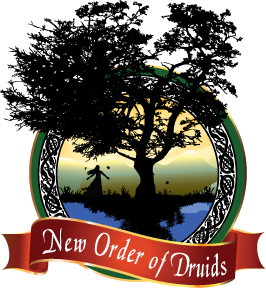NOD shortfilm premiering on January 10, 2026
First of all, we would like to wish everyone a happy and blessed Winter Solstice! We hope you will have joyful holidays as yet another year is coming to an end!
We already look a little bit ahead, more specifically to January 10, 2026.
2025 has been a productive year, with the introduction of the digital membership card, additional payment options for the membership, the switch to the Plant A Tree donations, the publication of handfasting registry books, and the new NOD Vernemeton in Spain.
We also launched our new Youtube channel, and exactly that's where you will soon find the result of yet another project of 2025.
On January 10, 2026 we will be premiering our new shortfilm "The Legend of the New Order of Druids" on Youtube. The video will be a 15-minute long audiovisual retelling of an old story by Jean-Claude Pretre, and written in expanded form by David Dom in 2006 for the NOD Introduction Booklet for Upgraded Members.
In case you wonder what the story will be about, here's a teaser-free introduction:
At the eve of the Roman invasion of Gaul, the Druids gather in a great Council to determine what should be done to avert their impending doom. They plead to the Gods for aid, but no help would come. So the Druids must determine for themselves what they should do to make sure the Sacred Knowledge will not get lost. What decision will they make in the end?
You will find the video here:
https://www.youtube.com/watch?v=Y4wfqZIOT_w
The video will be premiering in 20 days from now, on January 10, 2026 at 8pm CET. Click the link in the left bottom corner of the video to turn on th notification, so you'll get reminded by Youtube when the video starts its premiere. At the exact same time, the film will also be shown in premiere at our NOD new year's reception at the mothergrove in Wilrijk (Antwerp, Belgium).
Don't forget to subscribe to our Youtube channel for more new content in the future:
https://www.youtube.com/@neworderofdruids
Please also consider following us on our other social media channels to stay up to date on news from the New Order of Druids:
⇒ Facebook: https://www.facebook.com/neworderofdruids/
⇒ Instagram: https://www.instagram.com/neworderdruid/
Thank you for your support!












